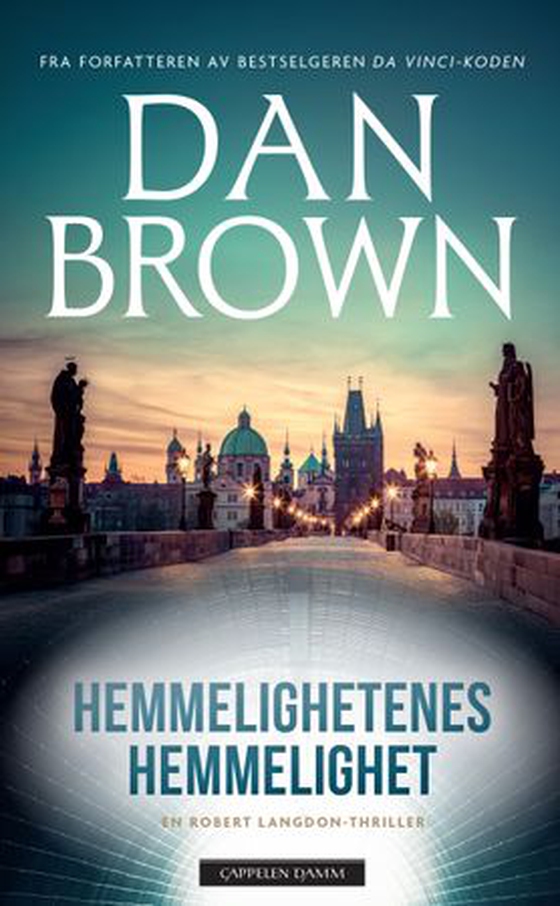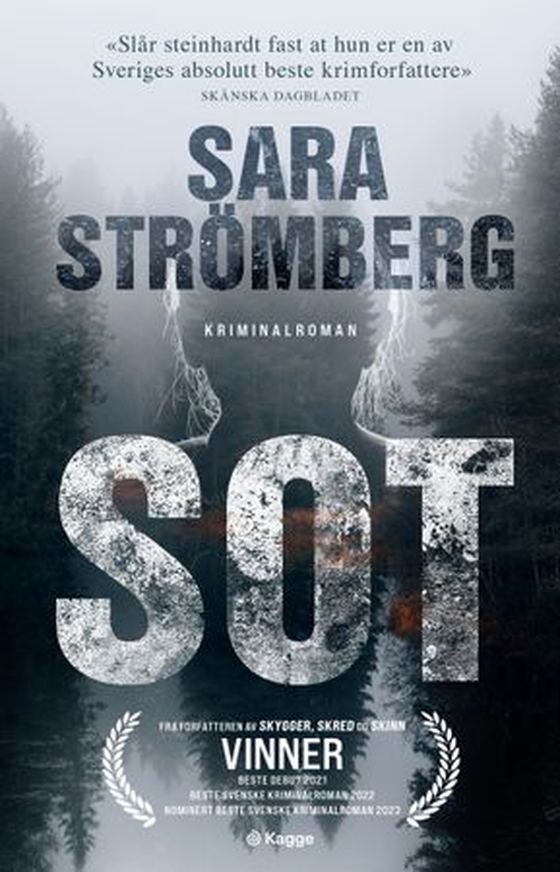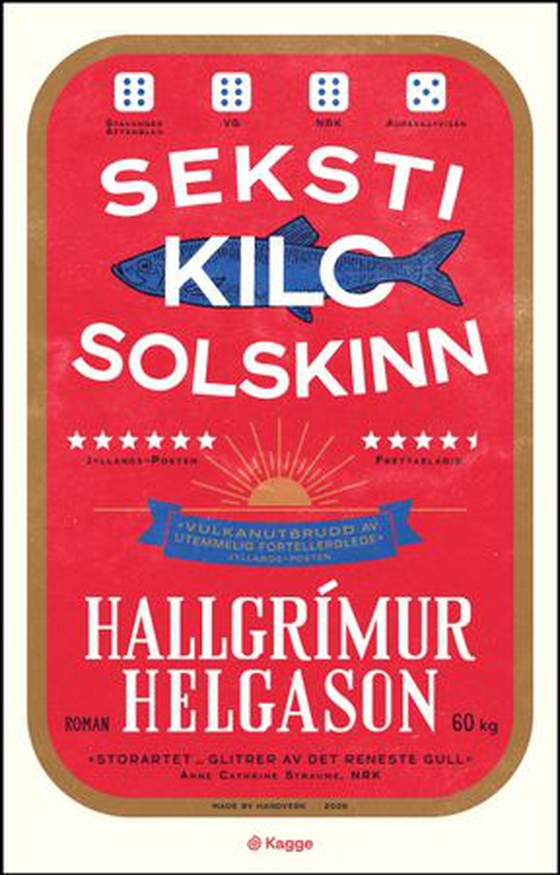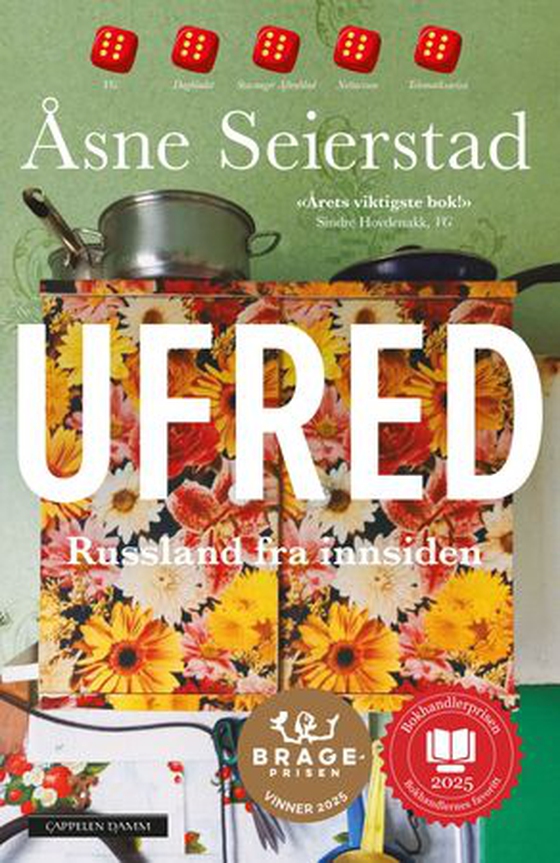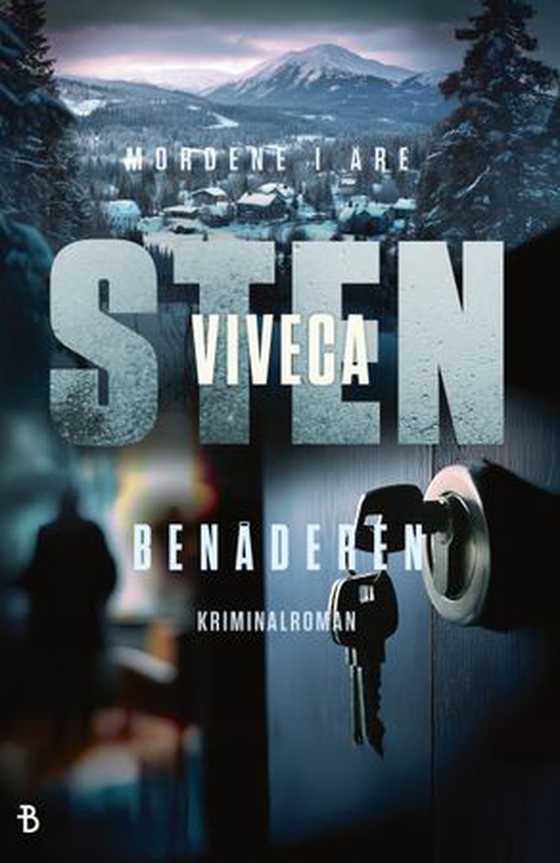
Hiroshima lydbok
355,-
'a master class in eyewitness storytelling . . . this gripping narrative chronicles one of history's darkest nightmare moments' - Annie Jacobsen, author of Nuclear War: A ScenarioOn the 80th anniversary of the devastating bombing of Hiroshima, the stories of the hibakusha are more important than ever.The stories of hibakusha - Japanese for atomic bomb survivors - lie at the heart of this compelli…
'a master class in eyewitness storytelling . . . this gripping narrative chronicles one of history's darkest nightmare moments' - Annie Jacobsen, author of Nuclear War: A ScenarioOn the 80th anniversary of the devastating bombing of Hiroshima, the stories of the hibakusha are more important than ever.The stories of hibakusha - Japanese for atomic bomb survivors - lie at the heart of this compelling minute-by-minute account of 6 August 1945 - the day the world changed forever as the Enola Gay dropped its payload over Hiroshima, ushering in the nuclear age. These survivors and witnesses, now with an average age of over 90, are the last people alive who can still provide us with reliable and detailed testimony about life in Hiroshima before the bombings. In this heart-stopping account they relay what they experienced on the day the city was obliterated, and what it has been like to live with those memories and scars over the rest of their lives.M. G. Sheftall has spent years personally interviewing survivors who were just adolescents at the time but have lived well into their nineties, allowing him to construct portraits of what Hiroshima was like before the bomb, and how catastrophically its citizens' lives changed in the seconds, minutes, days, weeks, months and years afterwards. Fluent in spoken and written Japanese, his deep immersion in Japanese society has given him unprecedented access to the hibakusha in their waning years. Their trust in him is evident in the personal and traumatic depths they open up for him as he records their stories.The result is a deeply human history of an unfathomable tragedy, which continues to haunt the world today.
Undertittel
The extraordinary stories of the last survivors of the atomic bomb who can still recall the day the world changed forever
Forlag
Headline Press
Utgitt
19.02.2025
Lengde
17:7
Sjanger
Historie, Dokumentar og fakta
Språk
English
Format
mp3
DRM-beskyttelse
App-only
ISBN
9781035422722
'a master class in eyewitness storytelling . . . this gripping narrative chronicles one of history's darkest nightmare moments' - Annie Jacobsen, author of Nuclear War: A Scenario
On the 80th anniversary of the devastating bombing of Hiroshima, the stories of the hibakusha are more important than ever.
The stories of hibakusha - Japanese for atomic bomb survivors - lie at the heart of this compelling minute-by-minute account of 6 August 1945 - the day the world changed forever as the Enola Gay dropped its payload over Hiroshima, ushering in the nuclear age. These survivors and witnesses, now with an average age of over 90, are the last people alive who can still provide us with reliable and detailed testimony about life in Hiroshima before the bombings. In this heart-stopping account they relay what they experienced on the day the city was obliterated, and what it has been like to live with those memories and scars over the rest of their lives.
M. G. Sheftall has spent years personally interviewing survivors who were just adolescents at the time but have lived well into their nineties, allowing him to construct portraits of what Hiroshima was like before the bomb, and how catastrophically its citizens' lives changed in the seconds, minutes, days, weeks, months and years afterwards. Fluent in spoken and written Japanese, his deep immersion in Japanese society has given him unprecedented access to the hibakusha in their waning years. Their trust in him is evident in the personal and traumatic depths they open up for him as he records their stories.
The result is a deeply human history of an unfathomable tragedy, which continues to haunt the world today.
On the 80th anniversary of the devastating bombing of Hiroshima, the stories of the hibakusha are more important than ever.
The stories of hibakusha - Japanese for atomic bomb survivors - lie at the heart of this compelling minute-by-minute account of 6 August 1945 - the day the world changed forever as the Enola Gay dropped its payload over Hiroshima, ushering in the nuclear age. These survivors and witnesses, now with an average age of over 90, are the last people alive who can still provide us with reliable and detailed testimony about life in Hiroshima before the bombings. In this heart-stopping account they relay what they experienced on the day the city was obliterated, and what it has been like to live with those memories and scars over the rest of their lives.
M. G. Sheftall has spent years personally interviewing survivors who were just adolescents at the time but have lived well into their nineties, allowing him to construct portraits of what Hiroshima was like before the bomb, and how catastrophically its citizens' lives changed in the seconds, minutes, days, weeks, months and years afterwards. Fluent in spoken and written Japanese, his deep immersion in Japanese society has given him unprecedented access to the hibakusha in their waning years. Their trust in him is evident in the personal and traumatic depths they open up for him as he records their stories.
The result is a deeply human history of an unfathomable tragedy, which continues to haunt the world today.
Ingen anmeldelser ennå


